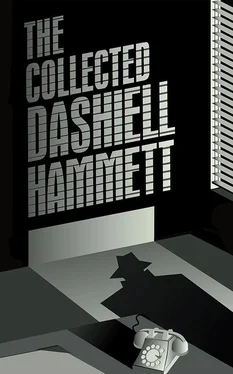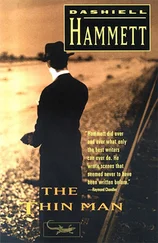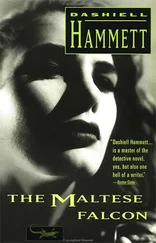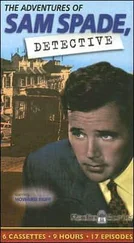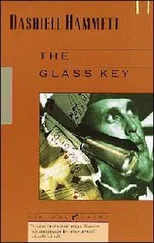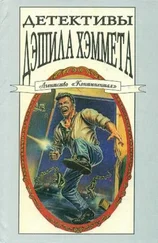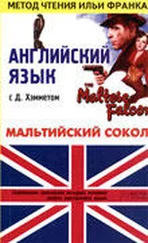As he sat up and swung his feet down to the floor details came back to him. The two days of steady drinking in Whitetufts on the other side of the Nevada-California line, with Harris, the hotel proprietor, and Whiting, an irrigation engineer. The boisterous arguing over desert travel, with his own Gobi experience matched against the American experiences of the others. The bet that he could drive from Whitetufts to Izzard in daylight with nothing to drink but the especially bitter white liquor they were drinking at the time. The start in the grayness of imminent dawn, in Whiting’s Ford, with Whiting and Harris staggering down the street after him, waking the town with their drunken shouts and roared-out mocking advice, until he had reached the desert’s edge. Then the drive through the desert, along the road that was hotter than the rest of the desert, with— He chose not to think of the ride. He had made it, though — had won the bet. He couldn’t remember the amount of the latter.
“So you’ve come out of it at last?” a rumbling voice inquired.
The steel-slatted door swung open and a man filled the cell’s door. Steve grinned up at him. This was the giant who would not wrestle. He was coatless and vestless now, and loomed larger than before. One suspender strap was decorated with a shiny badge that said MARSHAL.
“Feel like breakfast?” he asked.
“I could do things to a can of black coffee,” Steve admitted.
“All right. But you’ll have to gulp it. Judge Denvir is waiting to get a crack at you, and the longer you keep him waiting, the tougher it’ll be for you.”
The room in which Tobin Denvir, J.P., dealt justice was a large one on the third floor of a wooden building. It was scantily furnished with a table, an ancient desk, a steel engraving of Daniel Webster, a shelf of books sleeping under the dust of weeks, a dozen uncomfortable chairs, and half as many cracked and chipped china cuspidors.
The judge sat between desk and table, with his feet on the latter. They were small feet, and he was a small man. His face was filled with little irritable lines, his lips were thin and tight, and he had the bright, lidless eyes of a bird.
“Well, what’s he charged with?” His voice was thin, harshly metallic. He kept his feet on the table.
The marshal drew a deep breath, and recited:
“Driving on the wrong side of the street, exceeding the speed limit, driving while under the influence of liquor, driving without a driver’s license, endangering the lives of pedestrians by taking his hands off the wheel, and parking improperly — on the sidewalk up against the bank.”
The marshal took another breath, and added, with manifest regret:
“There was a charge of attempted assault, too, but that Vallance girl won’t appear, so that’ll have to be dropped.”
The justice’s bright eyes turned upon Steve.
“What’s your name?” he growled.
“Steve Threefall.”
“Is that your real name?” the marshal asked.
“Of course it is,” the justice snapped. “You don’t think anybody’d be damn fool enough to give a name like that unless it was his, do you?” Then to Steve: “What have you got to say — guilty or not?”
“I was a little—”
“Are you guilty or not?”
“Oh, I suppose I did—”
“That’s enough! You’re fined a hundred and fifty dollars and costs. The costs are fifteen dollars and eighty cents, making a total of a hundred and sixty-five dollars and eighty cents. Will you pay it or will you go to jail?”
“I’ll pay it if I’ve got it,” Steve said, turning to the marshal. “You took my money. Have I got that much?”
The marshal nodded his massive head.
“You have,” he said, “exactly — to the nickel. Funny it should have come out like that — huh?”
“Yes — funny,” Steve repeated.
While the justice of the peace was making out a receipt for the fine, the marshal restored Steve’s watch, tobacco and matches, pocket-knife, keys, and last of all the black walking-stick. The big man weighed the stick in his hand and examined it closely before he gave it up. It was thick and of ebony, but heavy even for that wood, with a balanced weight that hinted at loaded ferrule and knob. Except for a space the breadth of a man’s hand in its middle, the stick was roughened, cut and notched with the marks of hard use — marks that much careful polishing had failed to remove or conceal. The unscarred hand’s-breadth was of a softer black than the rest — as soft a black as the knob — as if it had known much contact with a human palm.
“Not a bad weapon in a pinch,” the marshal said meaningly as he handed the stick to its owner. Steve took it with the grasp a man reserves for a favorite and constant companion.
“Not bad,” he agreed. “What happened to the flivver?”
“It’s in the garage around the corner on Main Street. Pete said it wasn’t altogether ruined, and he thinks he can patch it up if you want.”
The justice held out the receipt.
“Am I all through here now?” Steve asked.
“I hope so,” Judge Denvir said sourly.
“Both of us,” Steve echoed. He put on his hat, tucked the black stick under his arm, nodded to the big marshal, and left the room.
Steve Threefall went down the wooden stairs toward the street in as cheerful a frame of mind as his body — burned out inwardly with white liquor and outwardly by a day’s scorching desert-riding — would permit. That justice had emptied his pockets of every last cent disturbed him little. That, he knew, was the way of justice everywhere with the stranger, and he had left the greater part of his money with the hotel proprietor in Whitetufts. He had escaped a jail sentence, and he counted himself lucky. He would wire Harris to send him some of his money, wait here until the Ford was repaired, and then drive back to Whitetufts — but not on a whisky ration this time.
“You will not!” a voice cried in his ear.
He jumped, and then laughed at his alcohol-jangled nerves. The words had not been meant for him. Beside him, at a turning of the stairs, was an open window, and opposite it, across a narrow alley, a window in another building was open. This window belonged to an office in which two men stood facing each other across a flat-topped desk.
One of them was middle-aged and beefy, in a black broadcloth suit out of which a white-vested stomach protruded. His face was purple with rage. The man who faced him was younger — a man of perhaps thirty, with a small dark mustache, finely chiseled features, and satiny brown hair. His slender athlete’s body was immaculately clothed in gray suit, gray shirt, gray and silver tie, and on the desk before him lay a Panama hat with gray band. His face was as white as the other’s was purple.
The beefy man spoke — a dozen words pitched too low to catch.
The younger man slapped the speaker viciously across the face with an open hand — a hand that then flashed back to its owner’s coat and flicked out a snub-nosed automatic pistol.
“You big lard-can,” the younger man cried, his voice sibilant; “you’ll lay off or I’ll spoil your vest for you!”
He stabbed the protuberant vest with the automatic, and laughed into the scared fat face of the beefy man — laughed with a menacing flash of even teeth and dark slitted eyes. Then he picked up his hat, pocketed the pistol, and vanished from Steve’s sight. The fat man sat down.
Steve went on down to the street.
Steve unearthed the garage to which the Ford had been taken, found a greasy mechanic who answered to the name of Pete, and was told that Whiting’s automobile would be in condition to move under its own power within two days.
“A beautiful snootful you had yesterday,” Pete grinned.
Читать дальше
